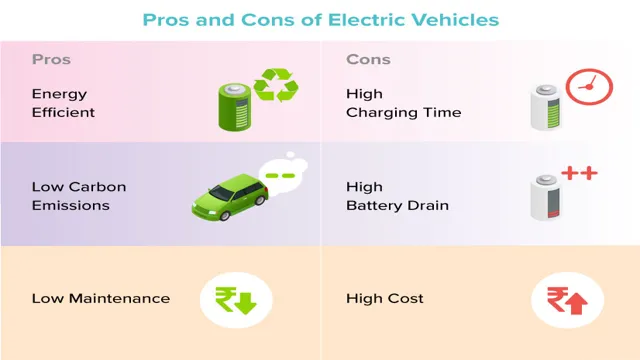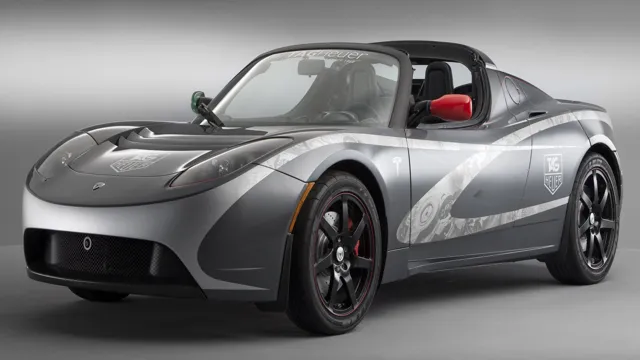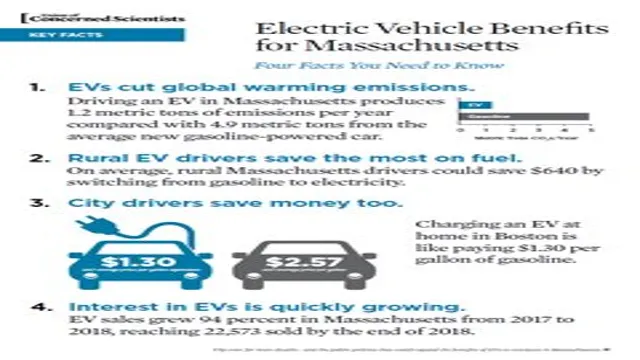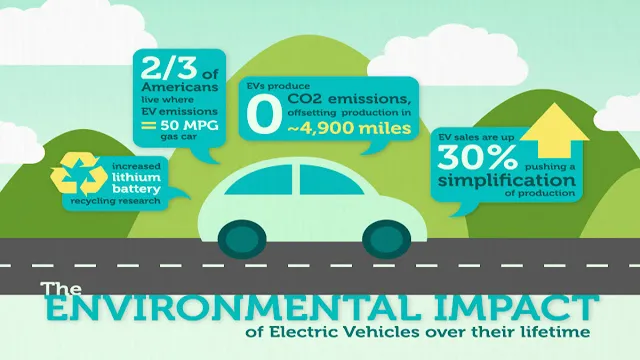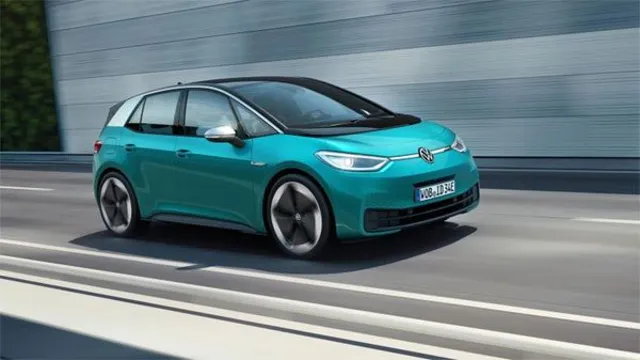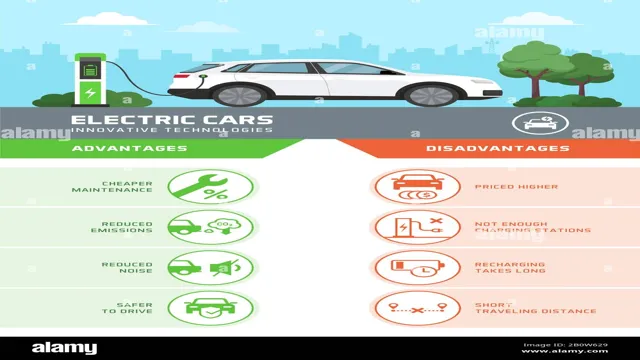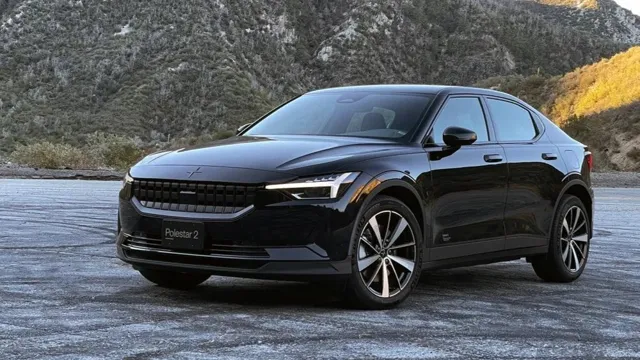Going Green: Exploring the Environmental Benefits of Electric Cars
Electric cars have become increasingly popular in recent years as they offer a range of benefits over traditional gasoline-powered vehicles. Perhaps one of the most significant benefits is the positive impact it has on the environment. According to the EPA, transportation is one of the largest contributors to air pollution in the US, accounting for 28% of greenhouse gas emissions.
Electric cars have the potential to significantly reduce these emissions as they emit 0% tailpipe emissions. This means they generate no harmful pollutants that contribute to poor air quality or climate change. In addition to zero tailpipe emissions, electric cars also have higher energy efficiency compared to gas-powered cars.
Electric motors are much more efficient in converting stored energy into kinetic energy, meaning less energy is lost as heat and less energy is needed to travel the same distance. As a result, electric cars use less energy overall, reducing the demand for fossil fuels and lowering emissions from power plants. Electric cars have also been shown to have a lower lifecycle carbon footprint compared to traditional cars.
The production and disposal of electric car batteries are often called into question when discussing this topic. However, studies have shown that electric cars still have a lower carbon footprint despite their initial production emissions, as they make up for these emissions during their lifetime of use. Additionally, battery recycling and repurposing technology has improved, reducing the potential impact on the environment.
Overall, electric cars have the potential to significantly reduce greenhouse gas emissions, improve air quality, and promote energy efficiency. As more people make the switch to electric cars, we can move towards a more sustainable and eco-friendly future.
Reduced Air Pollution
When it comes to reducing air pollution, electric cars are a game changer. These vehicles run on electricity rather than gas, which means they emit zero tailpipe emissions. This not only reduces the amount of harmful pollutants in the air, but also helps to combat climate change by reducing greenhouse gas emissions.
In highly populated areas, such as cities, where air pollution is a major concern, the use of electric cars can make a significant impact. Additionally, electric cars are much quieter than gas-powered vehicles and can also reduce noise pollution. While electric cars may still have some indirect environmental impacts, such as the production and disposal of batteries, the benefits for reducing air pollution are undeniable.
By switching to electric cars, we can reduce our carbon footprint and create a cleaner and healthier environment for future generations. So, what benefits do electric cars have on the environment? The answer is clear- reduced air pollution, among other things.
Zero Emissions from Driving
Air pollution is a major issue in many cities around the world. The continuous use of vehicles contributes significantly to this problem. However, electric cars have zero emissions, which can help to reduce air pollution drastically.
By switching to electric cars, we can significantly reduce the amount of carbon monoxide, carbon dioxide, nitrogen oxides and other harmful pollutants that are released into the air. This will not only help to reduce air pollution, but also improve the health of people in cities. By driving electric cars, we can all contribute to a cleaner, healthier environment.
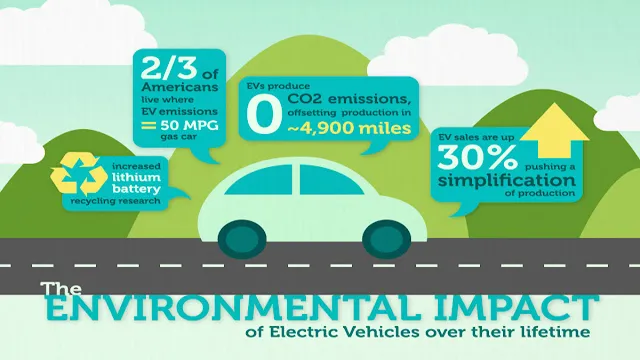
Less Greenhouse Gas Emissions
Reduced air pollution is one of the major benefits of decreasing greenhouse gas emissions. When we burn fossil fuels like oil and coal, they release pollutants and greenhouse gases into the atmosphere. These emissions cause various health problems like asthma, heart disease, and even cancer.
But by reducing our emissions, we can significantly decrease the amount of pollution in the air. A study found that if the US cut its emissions by 40% in the next 20 years, it could prevent up to 4,300 premature deaths each year. That’s a big number that shows the importance of reducing greenhouse gas emissions.
Aside from health concerns, air pollution also affects the environment. It damages crops and forests, decreases visibility, and contributes to climate change. High levels of pollution can also cause acid rain, which harms the soil and water sources.
But by decreasing emissions, we can help to prevent these negative impacts. Adopting sustainable practices like using renewable energy sources and electric vehicles can help to reduce greenhouse gas emissions. By making these changes, we can clean up the air, and live in a healthier environment.
So, let’s take action to reduce greenhouse gas emissions to make a better world for ourselves and future generations.
Reduces Smog Formation
Reduced air pollution is a crucial aspect that we should all pay attention to, considering the major role it plays in the environment and our health. One of the ways we can efficiently reduce air pollution is by reducing smog formation. Smog is a thick, hazy, and often dangerous fog-like air pollutant that can cause respiratory problems and other health concerns.
With the increase of industrialization and fossil fuel consumption, smog has become a persistent problem in most urban areas. However, there are various ways to reduce smog’s formation, including promoting the use of cleaner energy sources such as wind, solar, or hydropower, reducing the use of fossil fuels by promoting public transportation or carpooling, and stricter regulations on factory’s emissions. By reducing smog’s formation, we can create a healthier environment for ourselves and future generations, and mitigate climate change’s adverse effects on the planet.
We all need to play a part in reducing air pollution, and it starts with adopting a sustainable lifestyle that promotes cleaner energy and a healthier environment.
Energy Efficiency
Electric cars have several environmental benefits, primarily due to their energy efficiency. Compared to traditional gas-powered vehicles, electric cars emit significantly less greenhouse gases, as they run on electricity produced by renewable sources like solar or wind power. As a result, they help reduce air pollution and improve the overall quality of the environment.
Furthermore, electric cars also come with lower ownership costs, due to their low maintenance and fuel costs. With the increasing demand for sustainable transportation options, electric cars are becoming more popular, which can further accelerate the development of renewable energy sources. So, if you’re looking to contribute towards a healthier planet, transitioning to an electric car can be a great way to help.
More Efficient Energy Use
Energy efficiency is a key factor in reducing our reliance on non-renewable resources and protecting the environment. By using energy more effectively, we can reduce our carbon footprint and save money on energy bills. There are many ways to improve energy efficiency, such as using LED light bulbs, installing smart thermostats, and upgrading to energy-efficient appliances.
Additionally, simple changes to daily habits can also have a big impact, such as turning off lights when leaving a room or unplugging electronics when not in use. Investing in energy efficiency not only benefits the environment, but also improves the comfort and quality of our daily lives. By taking small steps to improve energy efficiency, we can make a big difference in reducing our impact on the planet.
Less Dependence on Fossil Fuels
When it comes to reducing our dependence on fossil fuels, increasing energy efficiency is one of the most effective steps we can take. By improving the way we consume energy, we can reduce the amount of fossil fuels we require to power our homes and businesses. This can be achieved through a range of measures, from using energy-efficient appliances to insulating our homes and buildings.
For example, replacing incandescent light bulbs with LED bulbs can result in significant energy savings. Similarly, upgrading to energy-efficient heating and cooling systems can reduce our reliance on fossil fuels for heating and cooling our indoor spaces. Embracing energy efficiency not only helps us reduce our impact on the environment but can also save us money in the long run.
By making small changes to our energy use habits, we can make a big difference in reducing our dependence on fossil fuels and building a more sustainable future.
Sustainability
Electric cars are becoming increasingly popular due to their environmentally-friendly nature. One of the biggest benefits of electric cars to the environment is the significant reduction in air pollution they produce. Cars that run on gasoline emit harmful pollutants like carbon monoxide, nitrogen oxides, and particulate matter, which are detrimental to both the environment and human health.
Electric cars, on the other hand, are powered by electricity, which means they emit zero tailpipe emissions. Another benefit is the reduction in greenhouse gases that contribute to global warming and climate change. Electric cars produce fewer greenhouse gas emissions compared to traditional gasoline vehicles, primarily because the electricity used to charge them can come from renewable sources like wind or solar energy.
Additionally, the use of electric cars can help reduce dependence on nonrenewable sources of energy like oil and gas, promoting a more sustainable future. Overall, electric cars are a more eco-friendly option that offers benefits for the environment, public health, and the planet’s long-term sustainability.
Renewable Energy Sources
Renewable Energy Sources Sustainability is a crucial aspect that must be considered when it comes to energy production and consumption. The current global energy needs have heavily relied on non-renewable sources like coal and oil, leading to environmental degradation and climate change. However, the growing demand for clean and sustainable energy has paved the way for renewable sources like solar, wind, hydro, and geothermal energy.
These sources work without degrading the planet’s natural resources and reducing greenhouse gas emissions, thereby mitigating climate change. Renewable energy sources also support the global vision of transitioning towards a carbon-free world by 2050. Governments and private sector players are investing heavily in renewable energy technologies, making them cheaper and more widely available.
By harnessing these renewable energy sources, we can achieve energy security while safeguarding the planet for future generations.
Longer Lifespan of Batteries
Sustainability In today’s world, sustainability has become a crucial aspect when it comes to technology. One of the key factors in achieving sustainability is longer battery lifespan. With the digital devices being an integral part of our daily lives, having longer-lasting batteries means reducing electronic waste and thus reducing the impact on the environment.
Therefore, manufacturers worldwide are investing heavily in research and development to make batteries that can be recharged a larger number of times without losing their efficiency. These newer batteries not only reduce the cost of replacing batteries frequently but also benefit the planet by reducing their impact on the environment. As consumers, it is essential to choose devices with longer battery life to help protect our planet and ensure a sustainable future.
Conclusion
In conclusion, electric cars offer a greener, cleaner and more sustainable mode of transportation that has a significant positive impact on the environment. By producing zero emissions, they contribute to healthier air quality, reduce the carbon footprint and help mitigate climate change. Furthermore, the advancements in technology have made electric cars more affordable and accessible to the masses, making the green revolution all the more possible.
So let’s drive the change towards a cleaner and brighter future with electric cars and make a significant difference in helping preserve our planet for future generations.”
FAQs
How do electric cars benefit the environment?
Electric cars emit less pollutants and greenhouse gases, resulting in improved air quality and reduced carbon footprint.
What is the environmental impact of using electric cars?
Electric cars have a significantly lower impact on the environment compared to traditional gasoline cars, as they produce no emissions during operation.
How does the use of electric cars reduce dependence on fossil fuels?
By utilizing electricity from renewable sources such as solar and wind power, electric cars help to reduce our reliance on non-renewable fossil fuels, which can negatively impact the environment.
Are electric cars a more sustainable transportation option?
Yes, electric cars are a more sustainable option compared to traditional gasoline cars as they produce less harmful emissions and can utilize renewable sources of energy.
